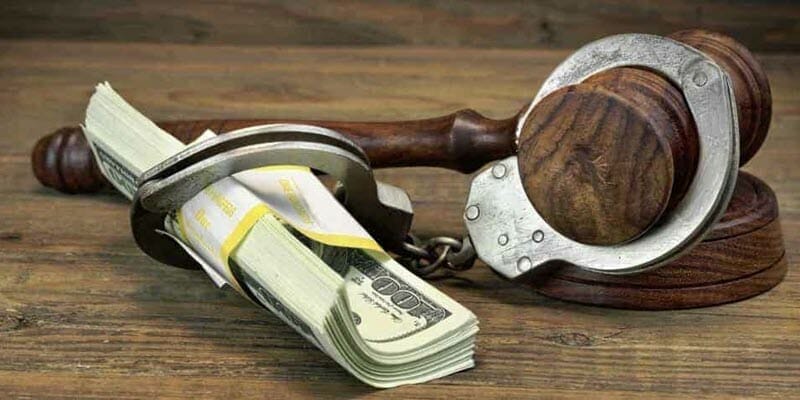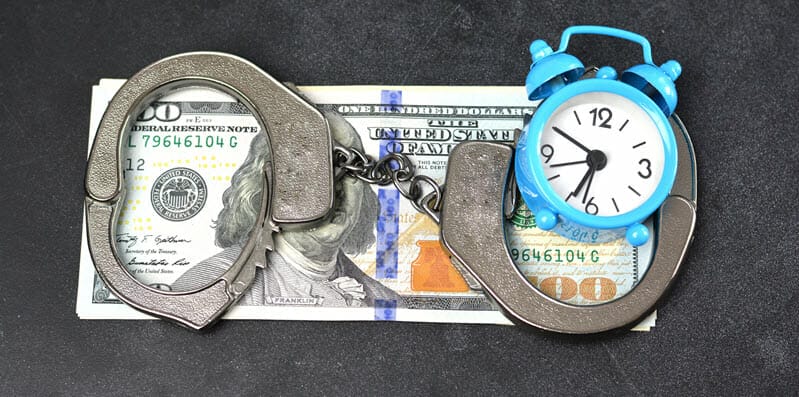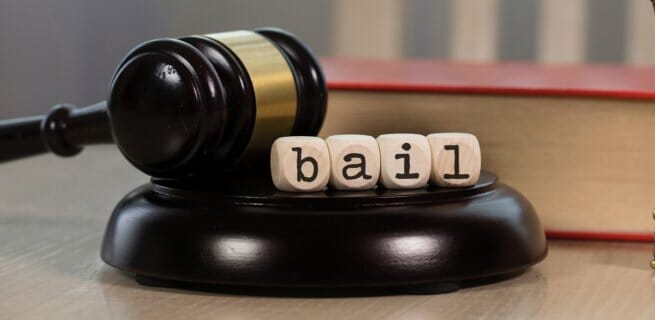
- Felonies
- *
- Misdemeanors
- *
- Drug/Narcotics Violations
- *
- Sex Offenses
- *
- Gun / Weapons Violations
- *
- Robbery
- *
- Burglary
- *
- Assault
- *
- Theft
- *
- White Collar Crimes
- *
- Domestic Assualt
- *
- Property Damage
- *
What Does it Cost to Get Out of Jail?
After an arrest, getting out of jail is the first thing on an inmate's mind. No one wants to sit behind bars for longer than necessary. Most people are released by posting bail, but how much will it cost?
When you post bail, it generally involves putting up cash or property. You post bail for your release, with a promise to show up for court.
Four Ways You Can Get Released From Jail After an Arrest
One common question is, can you pay to get out of jail? If you or a loved one ever gets arrested, there are four ways you can get released legally:
- You can pay the bail amount with cash or a cashier's check. Some courts will also allow credit card or personal check payments.
- You can put up property as collateral.
- The judge may release you on your own recognizance.
- You can hire a bail bondsman to post a surety bond.
Bail Is Expensive
In most cases, the bail amount is decided by a judge during a bail hearing. Some court systems have pre-set bail amounts for common crimes. Standard costs include the following:
- Common misdemeanors hover around $1,000.
- Gross misdemeanors average about $2,000.
- Felony charges range from $5,000 to $20,000.
Although the Eighth Amendment protects individuals from excessive bail, judges sometimes order extravagant amounts that rise into the millions, though this is rare.
Many have argued that their high baill amount violates the Eighth Amendment. Very few arguments have been successful.
Despite the Eighth Amendment, judges are known for setting bail amounts high to keep the arrested person in jail, especially those with a violent criminal history. High bail is often reserved for defendants arrested on suspicion of murder, drug dealing, or other violent crimes that make them a flight risk.
Bail's only purpose is to ensure that the defendant returns for their first court appearance and any later dates, and it cannot be used to fund the government or punish a person for being arrested.
If you plan on posting bail with cash, you could pay thousands of dollars. Most people simply don't have that amount of money lying around. Even lower amounts may be unaffordable for defendants or their family members, and you may not be able to raise money to pay for your release.
Reasons a Judge Might Release You on Your Own Recognizance
If possible, you want to get released without posting bondl. The only way to accomplish this is if the judge releases you on your own recognizance (OR). This means you are promising to show up for your first court appearance dates and any after. A judge may grant you OR based on the following:
- You have parents, siblings, and grandparents who live in the community.
- You have grown up in the community or lived there many years.
- You work in the community.
- You have no criminal history or a history of only minor criminal offenses.
- You have a solid record of always showing up to court dates.
What Happens if You Use a Bail Bond?
If you cannot pay your bail amount in cash or do not have a property to put up, your only other option is a bail bond. A bail agency will sign your bail with a surety bond.
In turn, you pay the bondsman's fee, which is a percentage of your bail amount. It is important to note that this percentage is controlled at the state level and not by the bail agency.
You may have to put up collateral, depending on the bond terms. The judge will revoke your bail and charge the full amount if you do not show up for your court date. A bench warrant will also be issued for your arrest.
Even if you show up for all court dates and follow the terms of your release, you will not receive a refund of the percentage paid to the bail agency. You will recover any collateral used during the bail bond.
Dealing With an Arrest Is Stressful
It's frightening getting arrested, especially if you have never been before. It is in your best interest to cooperate and remain patient. Wait for your phone call and call a bondsman.
Cooperation will make your time in jail much easier. Your goal is to remain on your best behavior and get released as quickly as possible. Anything you do to complicate the process will result in longer delays.
You Don't Have to Go Through This Alone
Getting out of jail is a confusing process for many. You have questions and concerns, especially if you've never been through this.
It would help if you had someone to take your hand and walk you through the process. Contact us today to learn how we can help. From the legal jargon to the law, we will help you understand. Reach out today to learn more about our bail bond services.






